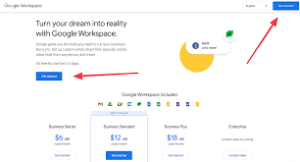In the digital age, online reviews have become a crucial aspect of the consumer decision-making process. Potential buyers often turn to platforms like Google Reviews to gauge the reputation and quality of a product, service, or company before making a purchase. These reviews provide valuable insights into the experiences of previous customers, guiding others in their choices. While anonymous Google reviews offer many benefits, they also come with significant challenges for both consumers and companies. In this article, we will delve into the power and pitfalls of anonymous Google reviews and explore how they influence the modern marketplace.
The Power of Anonymous Google Reviews:
- Authenticity and Transparency: Anonymous reviews are perceived as more authentic and transparent since the reviewers are not associated with the companies they are reviewing. Readers often assume that these reviews reflect unbiased opinions and genuine experiences, making them an essential tool for consumers to make informed decisions.
- Open and Honest Feedback: Anonymity gives reviewers the freedom to express their opinions openly without fear of retribution. This encourages them to share honest feedback, including both positive and negative aspects of their experiences. Such candidness is beneficial for other consumers and can also help companies improve their products and services.
- Empowerment of Consumers: Online reviews empower consumers, giving them a voice that can influence the success or failure of a business. When a product or service receives consistently positive reviews, it can attract more customers and vice versa. The collective power of anonymous reviews enables consumers to hold companies accountable for their actions.
- Diverse Perspectives: Anonymity allows people from different backgrounds and experiences to share their thoughts without biases or prejudices affecting their reviews. This leads to a more diverse range of opinions, helping potential customers gain a comprehensive understanding of the product or service in question.
- Real-time Information: Google reviews are usually updated in real-time, allowing consumers to access the latest feedback about a company or its offerings. This timeliness makes it easier for customers to make up-to-date choices and for companies to monitor and respond to customer feedback promptly.

The Pitfalls of Anonymous Google Reviews:
- False and Biased Reviews: The anonymity of reviewers also opens the door for fraudulent or biased reviews. Competitors may leave fake negative reviews to tarnish a company’s reputation, while friends or employees could leave overly positive reviews to boost it artificially. These dishonest practices can mislead consumers and harm companies.
- Lack of Verification: With anonymous reviews, it is challenging to verify the legitimacy of a reviewer’s claims or experiences. Companies may have difficulty discerning genuine concerns from baseless complaints. This lack of verification can create difficulties in responding to and resolving issues raised in reviews.
- Impact on Small Businesses: Smaller businesses may suffer disproportionately from negative anonymous reviews, as they often lack the resources and customer base to offset the impact. Even a few damaging reviews can significantly affect their reputation and revenue, potentially leading to unfair consequences.
- Trolls and Harassment: Anonymity on review platforms can encourage trolls and internet harassers to leave offensive or harmful comments. These comments not only hurt businesses but can also lead to emotional distress for employees and owners targeted by these online attacks.
- Review Bombing: Anonymous Google reviews are susceptible to review bombing, where a coordinated effort is made to leave multiple negative reviews on a business’s page. This can be orchestrated by competitors, disgruntled customers, or individuals with malicious intent, leading to severe reputational damage.
The Impact on Consumers and Companies:
- Consumer Empowerment: Anonymous Google reviews empower consumers to make well-informed decisions. They can compare different products or services, assess a company’s reputation, and weigh the pros and cons based on the experiences of others.
- Building Trust: Positive anonymous reviews can build trust in a company or brand, increasing its credibility and attracting more customers. Conversely, negative reviews can lead to distrust, causing potential customers to look elsewhere for their needs.
- Customer Feedback and Improvement: Companies can use anonymous reviews as a valuable source of feedback to identify areas of improvement. Addressing customer concerns can lead to enhanced products, services, and overall customer satisfaction.
- Reputation Management: Managing a company’s online reputation is essential in the digital age. Businesses must be proactive in addressing negative reviews professionally and resolving issues to mitigate the impact on their reputation.
- Legal Implications: In some cases, anonymous reviews might include defamatory or false statements that can lead to legal challenges. Companies must navigate carefully through such situations while respecting the privacy and rights of their customers.
Tips for Consumers and Companies:
For Consumers:
- Check Multiple Sources: Rely on more than one review platform to get a comprehensive understanding of a company’s reputation. Don’t base your decision solely on anonymous Google reviews.
- Evaluate the Context: Look for patterns in the reviews and consider the context of both positive and negative feedback. Be aware of review bombing or excessively glowing reviews without substantial details.
- Balance Outliers: Every business is bound to have some negative reviews. Analyze the overall sentiment and consider the ratio of positive to negative reviews before making judgments.
For Companies:
- Monitor Reviews Regularly: Stay proactive by monitoring Google reviews regularly. Respond professionally and constructively to both positive and negative reviews to demonstrate your commitment to customer satisfaction.
- Address Negative Feedback: Use negative reviews as an opportunity for improvement. Address the concerns raised, offer solutions, and show that you value customer feedback.
- Engage with Reviewers: Engage with reviewers, thanking them for positive feedback and providing assistance to those with negative experiences. This shows that you are attentive and responsive to customer needs.
Conclusion:
Anonymous Google reviews have undoubtedly revolutionized the way consumers make purchasing decisions and the way companies interact with their customers. The power of these reviews lies in their authenticity, transparency, and ability to empower consumers. However, the pitfalls of anonymity, such as false reviews and review bombing, pose significant challenges for both consumers and companies.
As consumers, it’s crucial to use anonymous reviews responsibly, taking into account the context and considering multiple sources of information. For companies, embracing customer feedback, addressing negative reviews constructively, and managing online reputation are vital steps to navigating the impact of anonymous reviews effectively.
Unmasking Honest Opinions: Uncovering Anonymous Google Reviews
In the end, a balance must be struck between harnessing the power of anonymous Google reviews for informed decision-making and mitigating their pitfalls to ensure a fair and transparent marketplace for all stakeholders involved.




